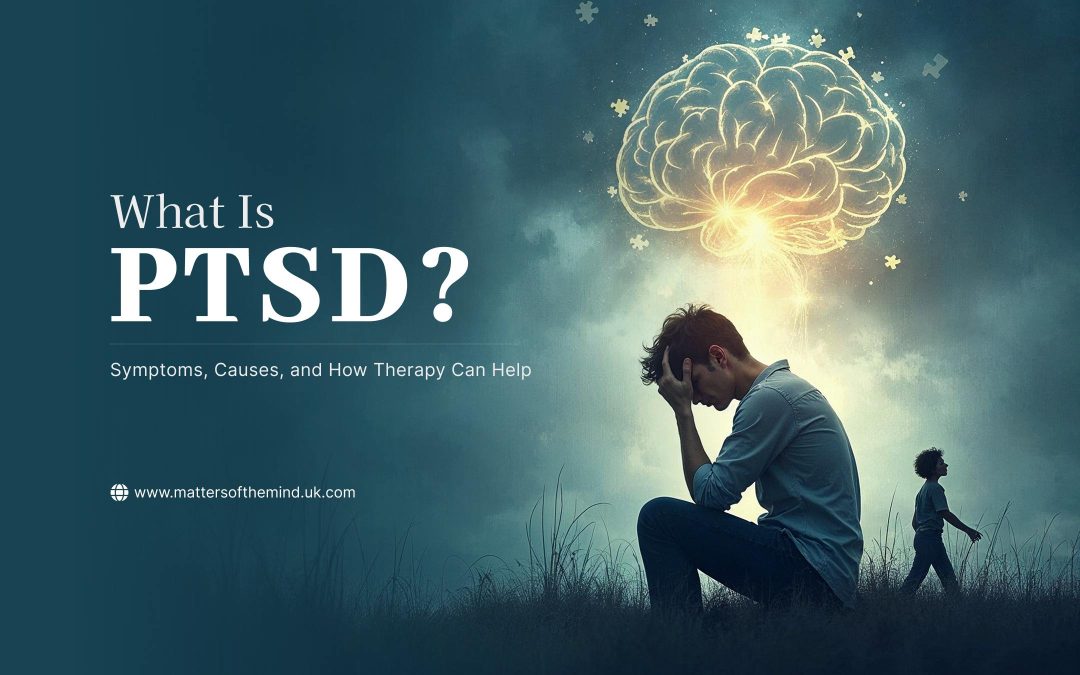Meaning of PTSD
Common Symptoms of PTSD
1. Intrusive thoughts & Re-experiencing
This involves reliving the traumatic events in distressing ways, often triggered by reminders of trauma. It typically includes flashbacks of the event if it is happening again, distressing nightmares, and persistent thoughts of unwanted memories. All these actions lead to sweating, panic attacks, or rapid heartbeat when reminded of the trauma.
2. Avoidance behaviour
In this, people mostly avoid anything that reminds them of their traumas. They refuse to talk about the trauma, avoid people, and places related to traumatic events, limited social interaction, and lost interest in their hobbies.
3. Negative changes in thinking and mood
PTSD impacts human emotions significantly and leads to long-term distress. It leads to continuous negative thoughts about the world or self, feelings of guilt, fear, and shame and not experiencing positive emotions or thoughts in the mind.
4. Changes in emotional or physical reactions
This disorder results in various emotional and physical changes in the body. Anger outbursts, irritability, and difficulty in concentration are the major signs that reflect the effect of this disorder. Sometimes a person harms himself in these situations.
PTSD symptoms can evolve over time and may worsen without appropriate treatment and support.
What Causes PTSD?
Serious accidents
Car crashes, workplace injuries, and life-threatening emergencies can trigger PTSD.
Physical or sexual assault
Domestic violence, sexual abuse, or physical assault might be a major reason for this disorder.
Childhood abuse or neglect
Early trauma, neglect, or any emotional abuse can later cause serious mental health issues.
Military situations
Many veterans develop PTSD after experiencing explosions, emergencies, or any dangerous mission.
Sudden loss
Unexpected deaths of loved ones or witnessing a traumatic loss can trigger PTSD symptoms and affect your mental health.
Medical trauma
Life-threatening illnesses, surgeries, or intensive medical treatments can affect emotional health significantly.
How does Personalised Therapy Help?
- Regaining a sense of control over emotions and thoughts.
- Rebuilds trust and emotional connection with others.
- Early intervention can reduce the risk of depression or other mental health issues.
- Provides effective coping methods like mindfulness, breathing exercises, or other methods.


